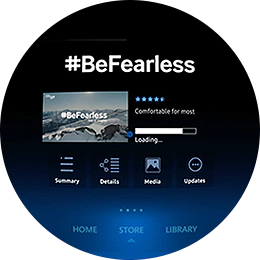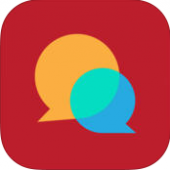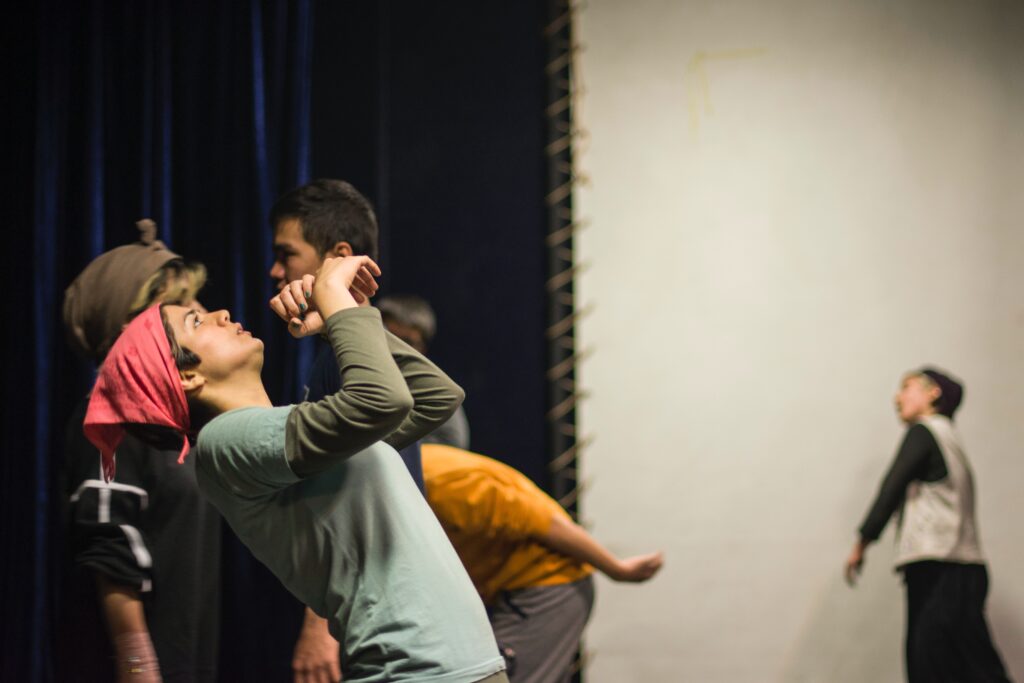A crucial skill to become a great conversationalist is improvisation. Improvisation is the ability to adapt to a given situation and react on the fly without running out of things to say. It’s an essential soft skill in different areas like career improvement or social skills, but it is primarily a good foundation for excellent communication. Whether you need it to become a comedian, a musician or an excellent public speaker, here are some tips and apps to improve your improvisation skills in conversation and find the confidence you need!
Apps to practice improvisation online
The best way to improve the ability to carry on a conversation is to practice with different people and train your improvisation skills.
If you’re too shy to talk with people in real life, you could begin online in a smaller and friendly setting.
There are apps and social platforms where you can have exciting conversations, practice exercises and become more confident while improvising. Check out this guide:
1. Improspeak

Improspeak is an original app where you can talk and share your passions in a community of like-minded people.
All you need is a webcam and a microphone, and Improspeak will match you with someone based on your shared interests, then the conversation can start.
To help you practice your improvisation skills, Improspeak gives you fun question cards that you can use to set a topic and keep the conversation going.
Once you have the issue, you can have fun talking with your partner and see where the conversation takes you.
A unique aspect of Improspeak is its way to keep moderation: after each chat, you will be able to rate your conversation buddy. This system keeps away pervs and bullies from the community.
So if you want to improve your improvisation skills while having meaningful conversations with interesting people, Improspeak is the perfect solution for you. Oh and, by the way, it’s free.
2. Random Topics

Random Topics is an app that generates a random topic for conversation every time you want to practice, whether you’re by yourself or with other people.
Once you set the topic, you get a timer and text-to-speech features, so you can use it while you’re driving, cooking, jogging etc. Then you can check your speech later.
You can skip topics you don’t like and even set a timer to change issues automatically. This way, you will develop perfect time management and improvisation skills!
3. Samsung #BeFearless

Samsung BeFearless is a self-training VR program to practice public speaking.
It helps you improve your improvisation skills through a VR device that simulates public and environmental noises.
On Samsung BeFearless, you can choose three different settings: School, Business and Daily Life.
Each set has four levels of difficulty, where you can pick three different topics. To pass a level, you have to complete and pass specific tasks based on given criteria.
Practice improvisation with a virtual audience, learn how to control your stage anxiety and become a fearless public speaker!
4. Like So

Like So works as a speech coach.
Suppose you often use filler words when you speak; this app gives you an effective way to control your verbal habits, repetitions and practise speaking articulately.
At the same time, the app provides a real-time speech analysis with all of your metrics.
This app has two modalities:
FreeStyle – you have your own open mic where you can say whatever you like and check your exposition.
TalkAbout – it’s a conversation game to improve your improvisation skills by speaking on the fly about a given topic.
Choose the modality that fits you best, and have fun!
5. IceBreaker

IceBreaker gives you hundreds of inspiring questions to keep the conversation flowing and start an improvisation performance.
You can personalise the question cards and add them to your list to have them set when you need them. There’s a card for every occasion!
IceBreaker also allows you to share your cards on social media, so you can use this tool both online and in real life to have improvisation challenges with your friends.
Where to practice improvisation in person
If you’re willing to practice improvisation in person, there are a lot of courses and events you can join. Whether your goal is to learn how to act, tell jokes, or debate, you should keep an open mind and accept what others bring to the conversation without judgment.
1. Improv classes

An improv is a form of live theatre in which the actors have no script or topic, and they have to make up a dialogue and a performance simply by improvising at the moment.
There are different styles of improv; some of them can be entirely comedy based, while others focus on drama or are more engaging with the public. However, the performance is always unique and different every time.
Some improv exercises that are often used to practice include:
- One minute life story: a person tell a one minute story of their life. The other participants listen without interruptions and then repeat the story for as much as they remember.
- Mirroring: it can be physical or also on a communication level. You should copy what the other person is doing and adapt to their movements in the quickest way possible. If the mirroring is verbal, you can try to rephrase what your partner said while keeping the same information.
- “Yes, and “exercises: when you’re improvising, you have to listen and adapt to your partner. You should always avoid blocking new ideas brought to the conversation. A quick rule to go is the “yes, and” rule: basically, you agree with the topic your partner gives you and keep the conversation flowing around it.
If you want to improve your improvisation while having fun with new friends, you should join an improv class and check your local theatres to sign up.
2. Debate competitions

In ancient Greece, improvisation was considered indispensable for the art of oratory. To be able to improvise, the sophists organised debate competitions with absolute relativism.
These debate competitions are still current today and consist of choosing a random theme and organising a debate with two teams, divided into “ team favourable to the topic” and “team against the topic”.
There are a lot of debate modalities. The most famous ones are:
- Roleplay debate: The participants choose a role, usually a historical figure to impersonate, and they debate based on research about that person.
- The balloon debate: Every person play as a character, and all the team pretends to be in a flying balloon. To reach the destination and avoid falling, the participants have to choose who to throw down for the team’s good. Every participant has to defend themself by explaining why the team should keep them.
- Mini debate: is a simplified debate that lasts less than two minutes, where the players can be one on one or in a team against each other.
3. Toastmasters

Toastmasters is an International organisation that teaches public speaking and leadership skills.
The organisation is structured in worldwide clubs you can join, each one has about 20 members, and they usually meet once a week.
Every club is unique, so you can attend different ones to find the club that fits your needs.
Once you join a club, you will be assisted by a mentor that will guide you in your learning path and help you become a perfect public speaker!
4. Improvisation games with friends

To practice improvisation, you can start by playing with friends!
Several games let you use your imagination and make up something on the fly. If you want to play something face to face, you can start by using board games.
Board games often allow us to use our imagination in a short amount of time, and this is one of the best ways to practice improvisation. Here are creative board games you could use with your friends:
- Dixit:
In this game, there are several cards with inspiring illustrations on them.
Every player has a deck with different cards; when it’s your turn, you have to pick one of your cards without showing it to the others and describe it subtly by expressing something that the card inspire.
Once you describe the card, everybody has to pick one card that relates the most to the narrator’s description.
Then, the cards are shuffled face down and eventually shown to everybody in a simple line. The players have to vote on the card they think was the one described by the narrator.
- Taboo:
To play this game, the participants have to split into two teams.
Every team will pick a card with a given subject, and the goal is to describe that subject without using taboo words that are too obviously related to it, so the team players can guess what it is.
You have to come up with different words and topics to win, and this game is incredibly inspiring when the people on the same team know each other well, so they pick up subtle references and cues quickly.
- Pictionary:
This game also requires a team division.
Every team has a secret word or sentence, and one of the players has to draw related references and subjects to help his team guess the sentence right.
It’s similar to taboo, but on a visual level instead of a verbal one, so you have to be even more creative with your cues and drawings!
In conclusion
These are the most fun, quick and practical techniques to improve your improvisation skills. Now it’s your turn! Choose the method that fits you better or even all of them, if you like, and remember to practice as much as possible and have fun!




